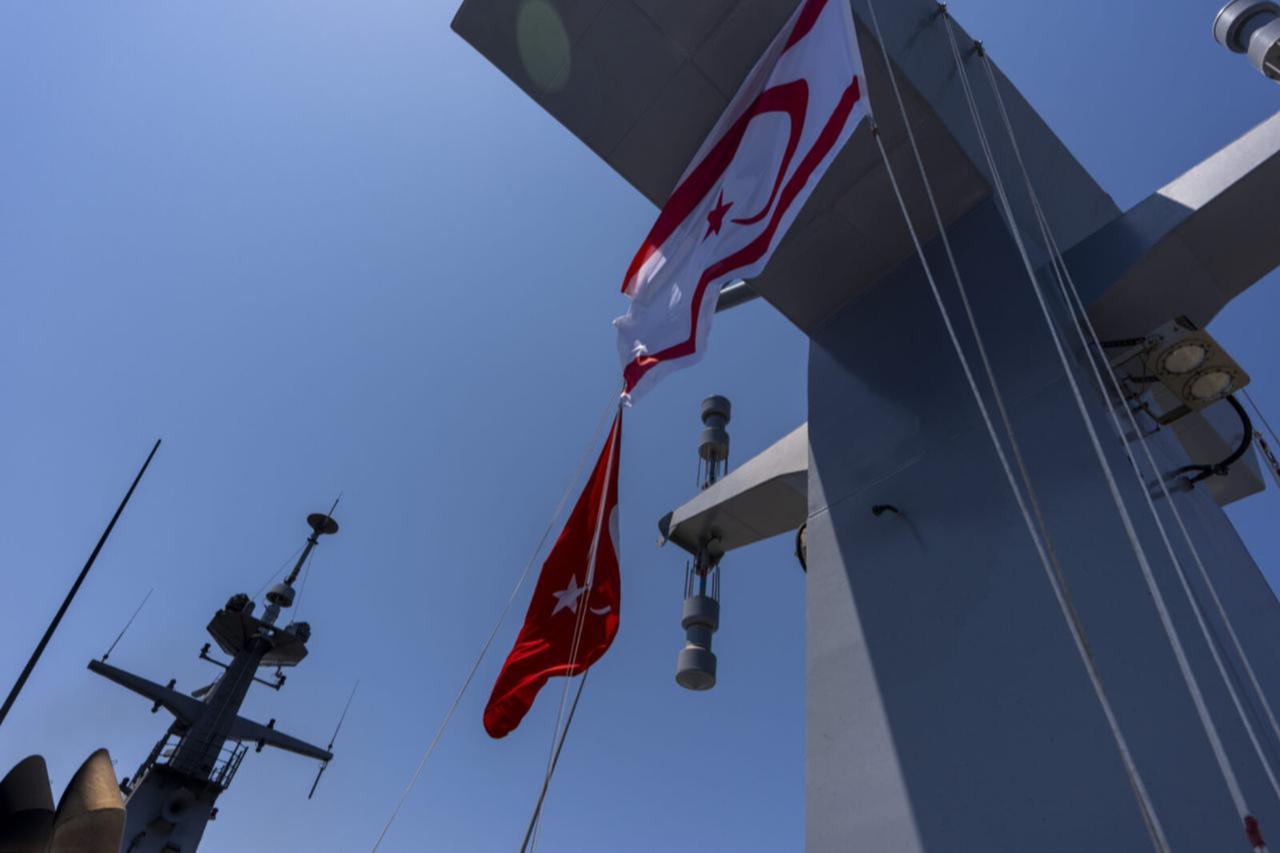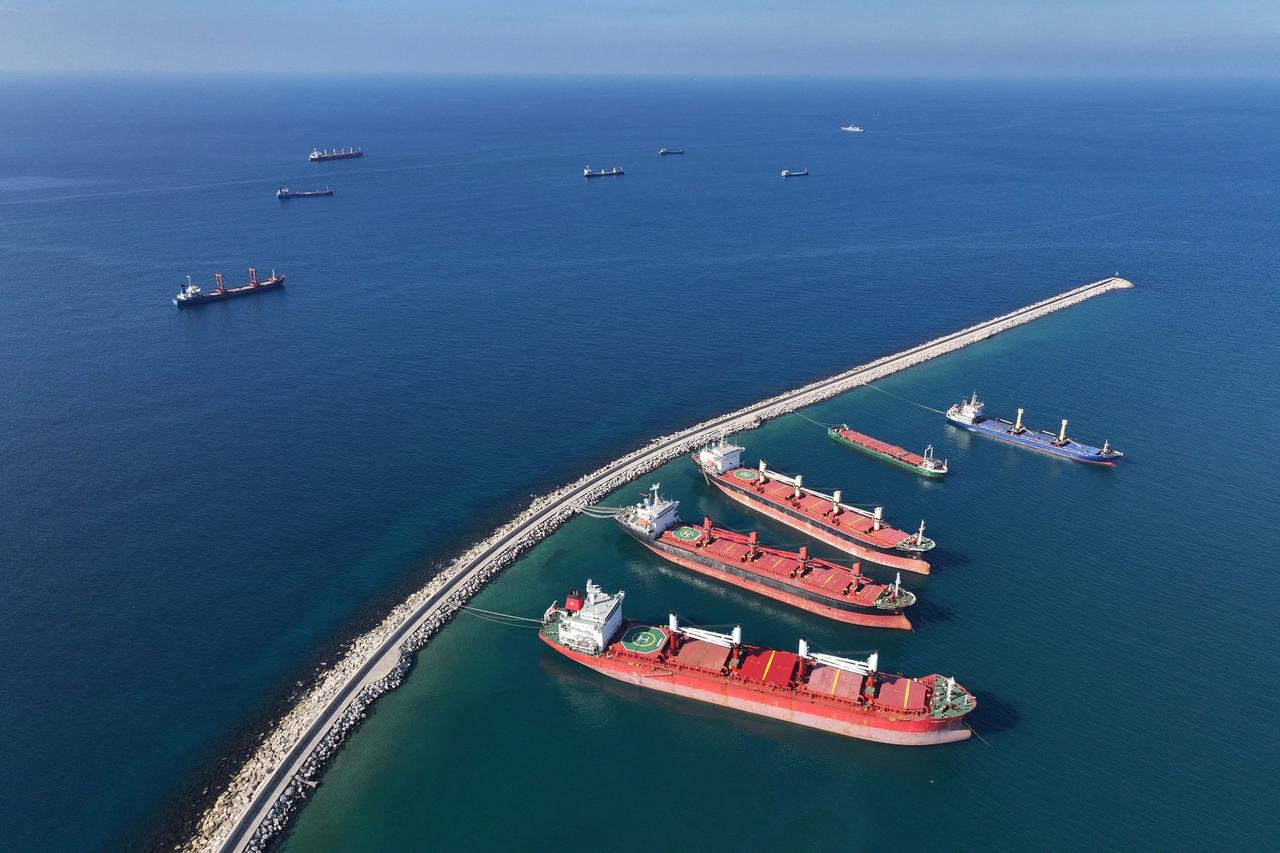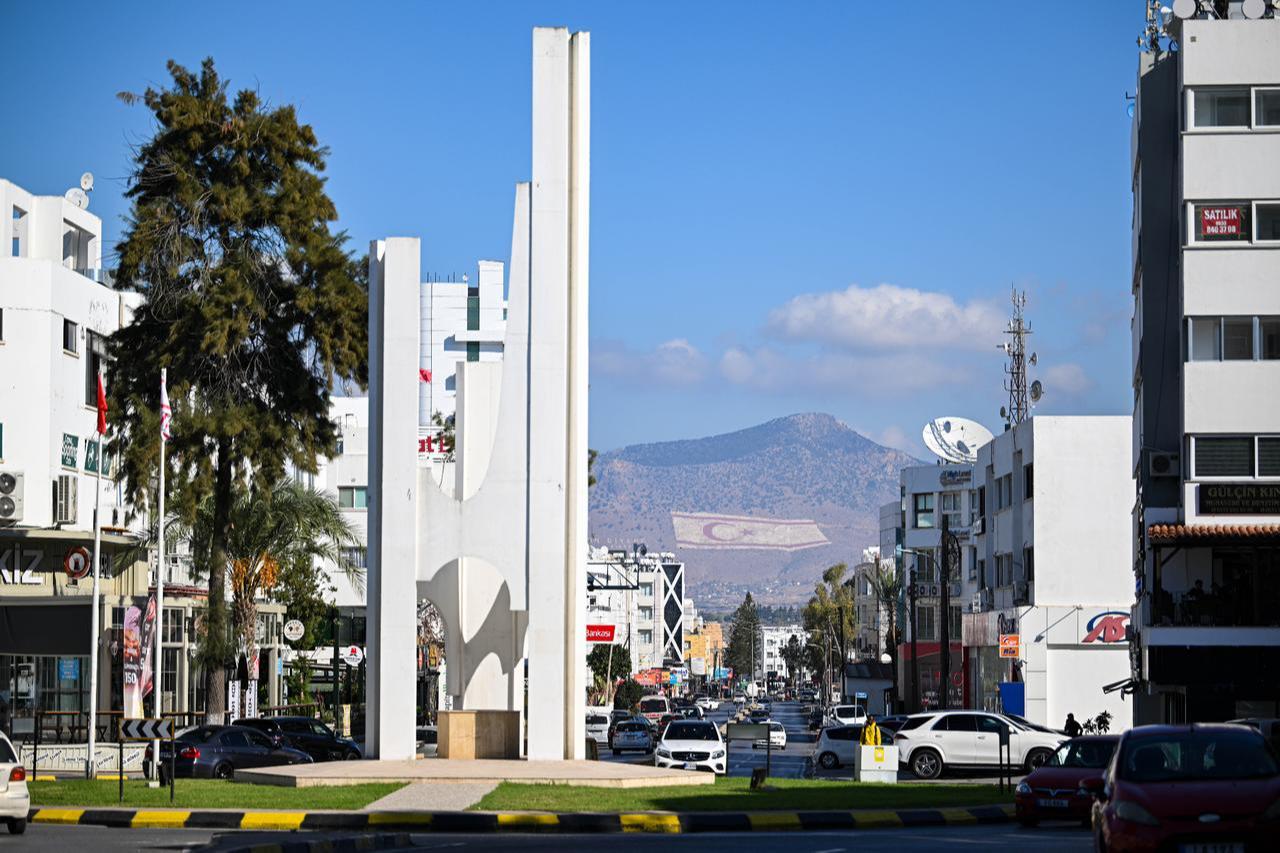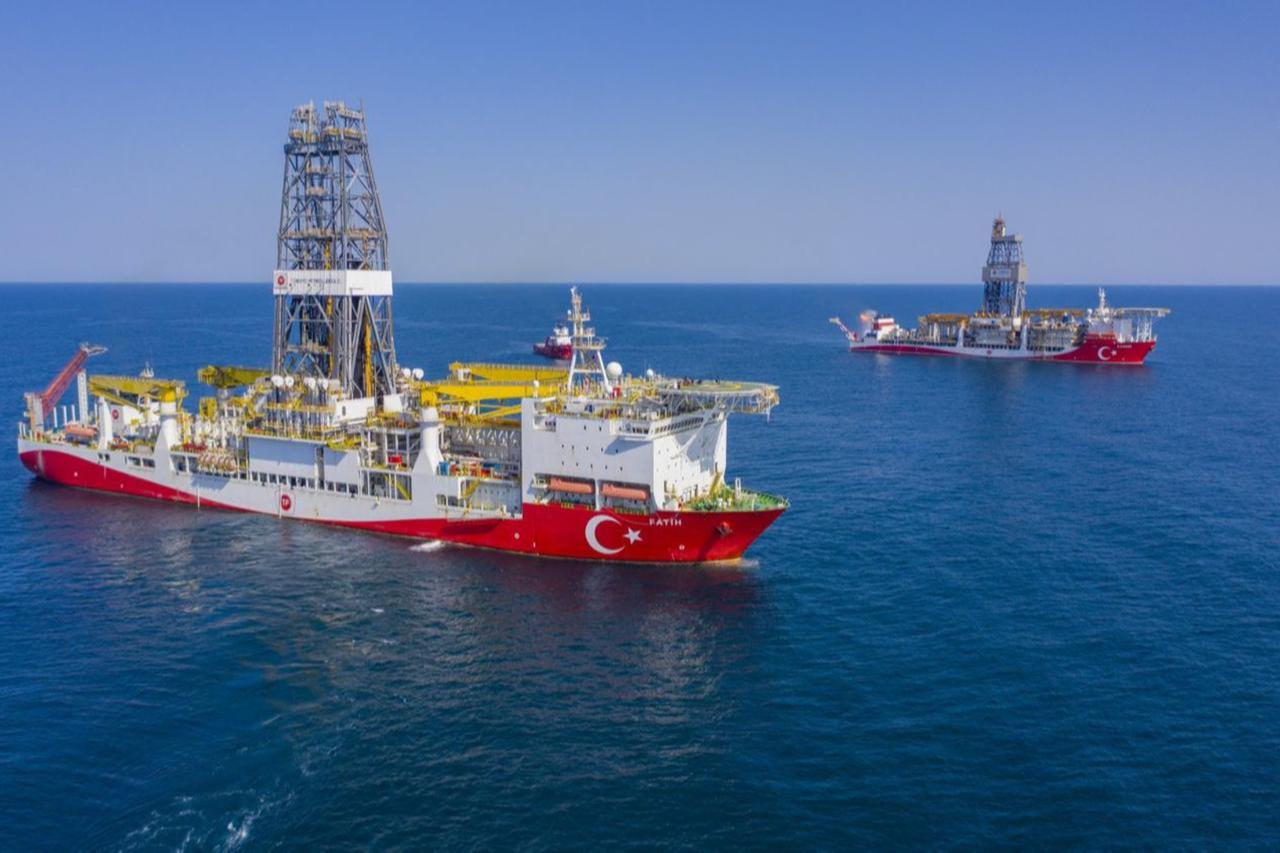
The Lebanese government’s ratification of an agreement on the delimitation of maritime jurisdiction areas with the Greek Cypriot administration on Oct. 23, 2025, has reshaped geopolitical balances in the Eastern Mediterranean.
The ratification of the deal, which had been pending since its signing in 2007, marks a strategic development for Lebanon’s energy policy as well as for Türkiye and the Turkish Republic of Northern Cyprus (TRNC).
The agreement ignores the maritime jurisdiction of the Turkish Cypriots and has the potential to undermine the continental shelf boundaries defended by Türkiye under the “Blue Homeland” doctrine.
The Greek Cypriot administration’s addition of Lebanon to its chain of maritime border agreements with Israel and Egypt is viewed as a new step in the ongoing effort to exclude the Türkiye-TRNC axis from regional energy diplomacy.
Although the maritime jurisdiction agreement signed between Lebanon and the Greek Cypriot administration appears to be an extension of Beirut’s efforts to exploit its offshore energy resources, it is, in essence, a Western-backed strategic move to reshape the balance of power in the Eastern Mediterranean.
Since the early 2000s, the Greek Cypriot administration has drawn an energy map that excludes Türkiye and the Turkish Republic of Northern Cyprus (TRNC) through exclusive economic zone (EEZ) delimitation agreements with Israel and Egypt.
Each of these steps has effectively challenged the continental shelf boundaries defined by Ankara’s “Blue Homeland” doctrine and shaped energy sharing in the region in a way that minimizes Turkish presence.
With Lebanon now included in this chain, the Greek Cypriot administration has positioned itself as a central actor in the Eastern Mediterranean energy order, paving the way for a new equation that seeks to narrow the strategic maneuvering space of Türkiye and the TRNC.
This development is directly linked to the long-term energy security strategies of the United States and the European Union in the region. In recent years, Washington has designated the Greece–Greek Cypriot administration–Israel trio as strategic partners under the “Eastern Mediterranean Energy Corridor” framework, turning this axis into a security and energy bloc outside NATO but aligned with Western interests.
In this context, the appointment of John Breslow, a businessman, as the new U.S. ambassador to the Greek Cypriot administration reflects Washington’s shift toward an investment- and energy-financing-oriented approach rather than traditional diplomacy.

The Greek Cypriot administration’s goal of linking to European energy networks through Greece and Israel via the “Great Sea Interconnector” project is an extension of this strategy. This project establishes an energy corridor that excludes Türkiye and the Turkish Republic of Northern Cyprus (TRNC).
With Lebanon’s inclusion, a geopolitical line is emerging that stretches from the south to the north of the Eastern Mediterranean, encircling Türkiye’s maritime jurisdiction claims.
From Ankara’s perspective, this development is not merely a technical maritime boundary arrangement but also a form of indirect pressure on Türkiye’s regional sphere of influence.
Lebanon’s coordination with the Greek Cypriot administration could affect future maritime delimitation talks with Syria, potentially limiting Türkiye’s diplomatic leverage over both Damascus and Beirut and complicating efforts to safeguard its strategic interests in the Eastern Mediterranean.
Considering Türkiye’s recent thaw in relations with Syria, a potential Greek-Syrian rapprochement could undermine the core pillars of Ankara’s “Blue Homeland” strategy. Such a scenario could result in a new geopolitical encirclement directly challenging both Türkiye’s continental shelf assertions in the Eastern Mediterranean and the TRNC’s maritime jurisdiction rights.
With the activation of the Lebanon–Greek Cypriot administration line, a new balance of power has emerged in the Eastern Mediterranean consisting of three main axes. The first is the Western-backed energy bloc shaped through the Greece–Greek Cypriot administration–Israel alignment.
The second is the regional energy cooperation network that includes Arab countries such as Egypt and Lebanon. The third is the counterbalance axis, which may include Türkiye, the TRNC and potentially Syria.
Competition among these three axes will be decisive not only for energy sharing but also for shaping the region’s security architecture and international legal order.
For Türkiye, it has become a strategic imperative to keep diplomatic channels open with Syria and Lebanon to avoid isolation and to strengthen joint energy and maritime initiatives with the TRNC.
Ankara’s response to this new situation should be based on a multi-layered strategy. Türkiye should clearly assert on international platforms that the Lebanon–Greek Cypriot administration agreement violates the TRNC’s continental shelf rights and pursue diplomatic and legal initiatives accordingly.
The launch of new seismic surveys and drilling operations in license areas transferred to Türkiye by the TRNC through the Turkish Petroleum Corporation (TPAO) also carries great importance in demonstrating de facto sovereignty.
Moreover, Türkiye should reframe its Eastern Mediterranean energy diplomacy on a multilateral basis, proposing an inclusive energy-sharing model that does not exclude Lebanon and Syria.
In doing so, Türkiye can counterbalance the “exclusionary encirclement strategy” of the Western-oriented bloc through diplomatic flexibility. In this context, Ankara’s protection of its interests in the Eastern Mediterranean using both international law and economic diplomacy tools will play a critical role in ensuring regional stability in the coming period.

The maritime jurisdiction agreement signed between Lebanon and the Greek Cypriot is a critical development that deepens the invisibility of Turkish Cypriots in the international arena and has the potential to weaken Türkiye's legitimate maritime jurisdiction claims in the Eastern Mediterranean.
This agreement effectively nullifies the “Continental Shelf Delimitation Agreement” signed between Türkiye and the TRNC on Sept. 21, 2011, and legitimizes the policies of the Greek Cypriot administration, which continues to claim sovereignty over all natural resources on the island.
The maritime jurisdiction agreements concluded by the Greek Cypriot side with Lebanon, Israel and Egypt under the title of the “Republic of Cyprus” are regarded as unilateral steps that disregard the rights of the Turkish Cypriot people, who are equal founding parties under international law.
This situation is extremely dangerous not only in terms of energy sharing in the Eastern Mediterranean, but also in terms of the future parameters for resolving the Cyprus issue.
This is because such initiatives reinforce the perception that the Greek Cypriot side is the “sole sovereign authority on the island,” thereby damaging the vision of a two-state solution on the international stage.
The most fundamental problem for the TRNC is that its lack of international recognition effectively prevents it from being a party to issues based on international law, such as maritime jurisdiction agreements.
The fact that countries such as Lebanon conduct direct negotiations with the Greek Cypriots disregards the reality of two equal peoples on the island and erodes the TRNC's legitimate rights on the diplomatic stage.
The long-term consequence of this situation is that the cycle of “de facto exclusion - legal invisibility” becomes permanent.
As the TRNC cannot be a party to any international agreement recognizing maritime jurisdiction areas, Greek Cypriot's claim to be the “sole legitimate representative” is gaining strength, isolating Türkiye's position in the Eastern Mediterranean and undermining the legitimacy of the “Blue Homeland” concept.

The hydrocarbon exploration and production agreements accelerated by the Greek Cypriot administration in recent years aim to integrate the energy resources of the Eastern Mediterranean into Europe. None of these projects mentions the TRNC, and Türkiye is systematically excluded.
Lebanon's inclusion in this chain has made the aim of marginalizing the Türkiye-TRNC energy cooperation model even more apparent. This situation also seriously limits the TRNC's efforts to assess its own hydrocarbon potential.
Although the TRNC granted TPAO an exploration license under the agreement signed in 2011, its unrecognized status prevents these activities from developing into partnerships with international energy companies.
The TRNC's unrecognized status carries high legal risk for international investors, and as a result, the island's energy potential remains largely untapped.
Consequently, although the TRNC effectively has the right to explore for energy, it remains economically and technically dependent on Türkiye; this weakens its deterrent against unilateral initiatives by the Greek Cypriot side in the Eastern Mediterranean.
In light of these developments, every step taken by the TRNC must be carried out in full coordination with Türkiye.
The Greek Cypriot administration's maritime jurisdiction agreements are part of a strategy aimed at excluding the Türkiye-TRNC continental shelf line from international law.
Therefore, Ankara and Nicosia must adopt a common diplomatic and legal stance against this scenario.
Türkiye and the TRNC should make representations to Lebanon, stating that this agreement violates the TRNC's continental shelf, and should also emphasize the invalidity of the agreement in a joint note to be submitted to the United Nations Secretariat for the Law of the Sea.
In parallel, seismic research and drilling activities in the license areas transferred to the TRNC by TPAO should be accelerated, thereby consolidating Türkiye's presence in the Eastern Mediterranean at a technical and practical level.
Furthermore, Türkiye and the TRNC initiating boundary delimitation talks with Syria could create a strategic counterbalance to the Lebanon-Greek Cypriot line.
This step will redefine Ankara's geopolitical influence in the region and counterbalance the advance of the Western-oriented energy corridor.
Alongside all these processes, the TRNC must strengthen its communication strategy towards the international community. Otherwise, the new energy order in the region will completely override the rights of the Turkish Cypriot people.
About the author: Zeynep Gizem Ozpinar is a board member and foreign policy specialist at the Turkish Foreign Policy Research Center (TUDPAM).